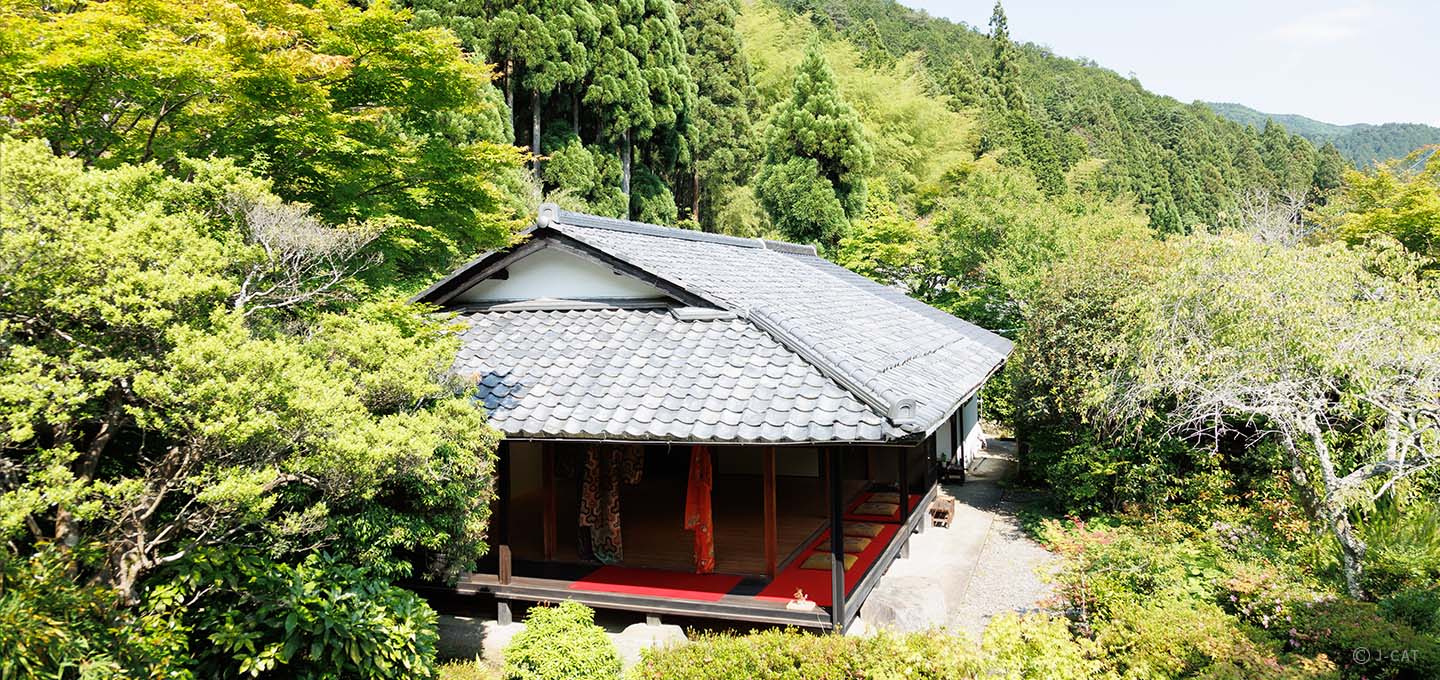
Special Experience
Kyoto
Discover the World of Noh in a Rural Kyoto Village - Includes Tea & Kyoto Sweets at a Temple
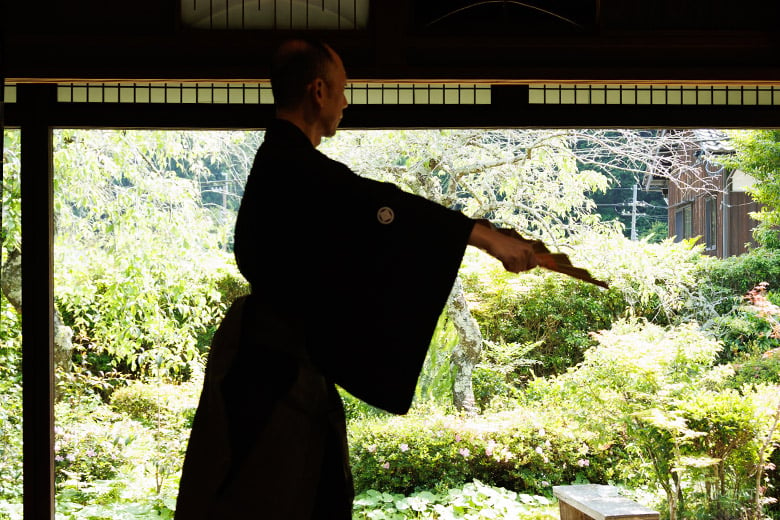
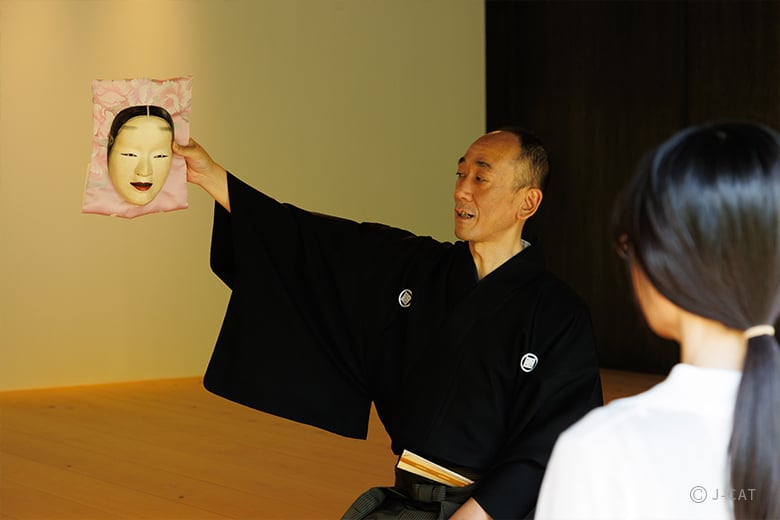
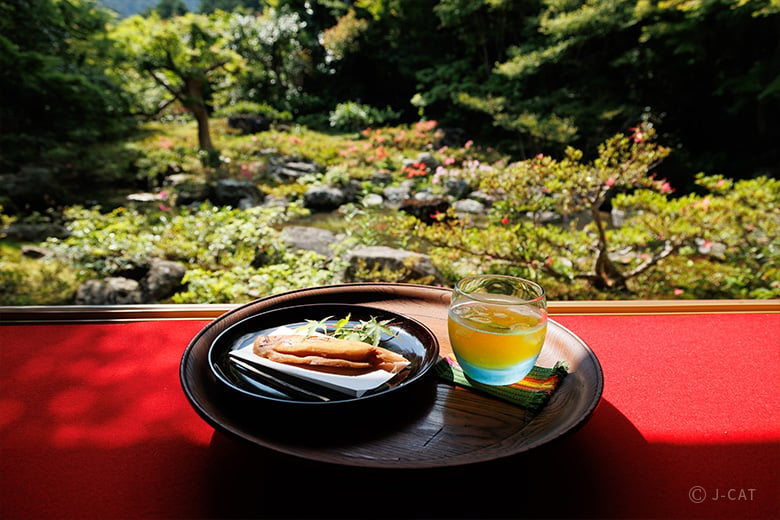
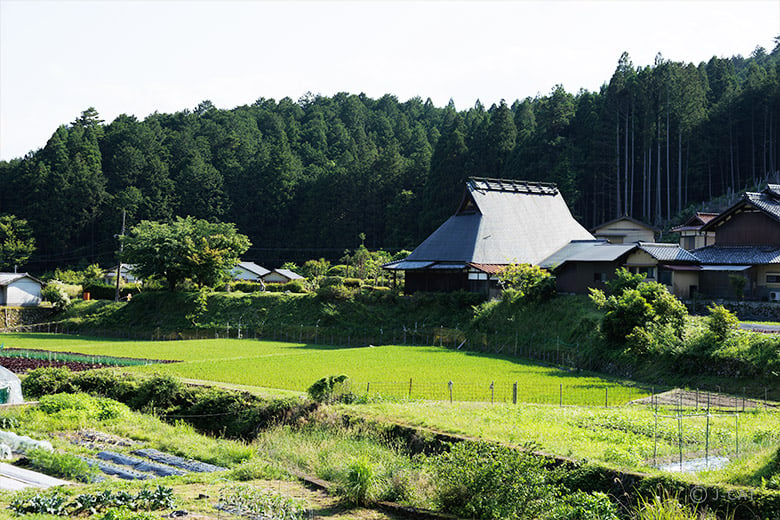
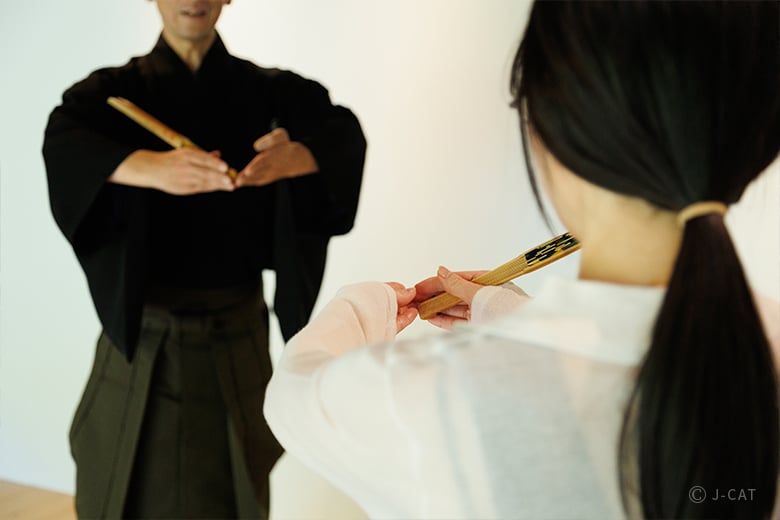
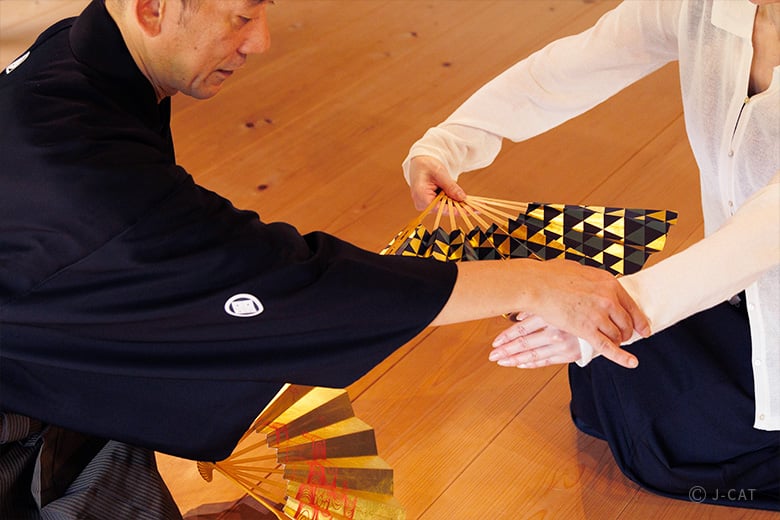
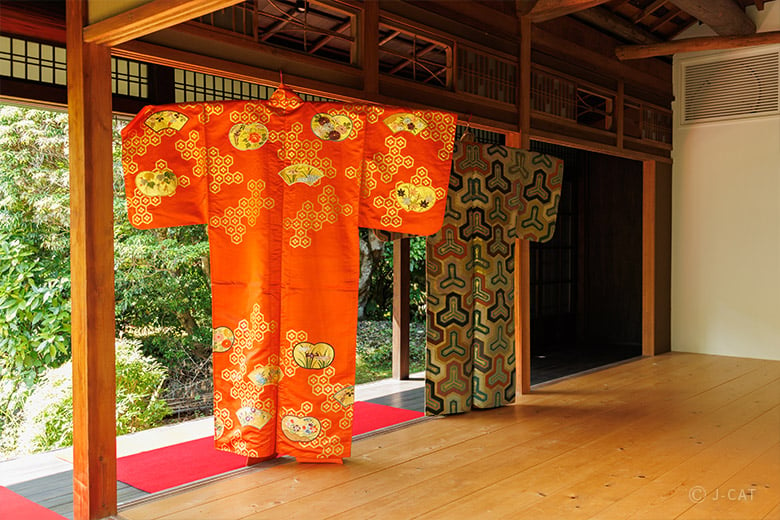
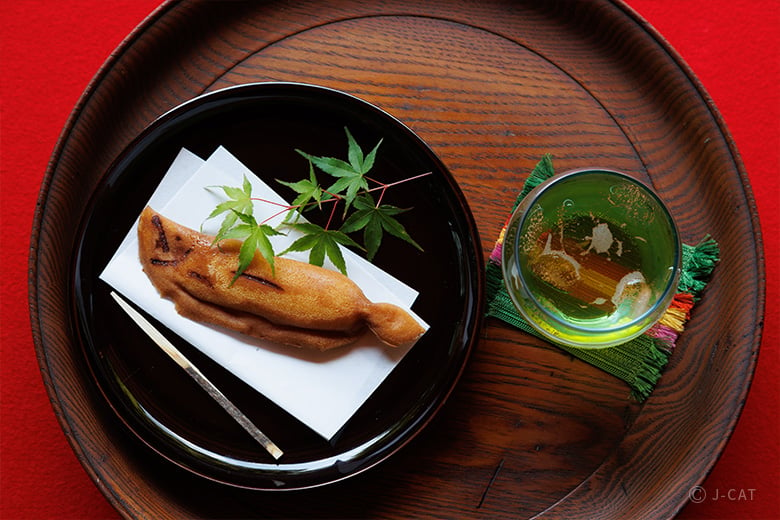
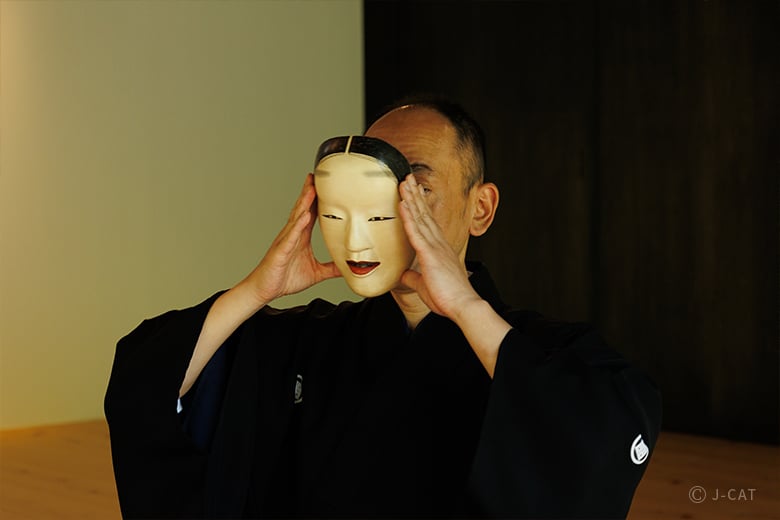
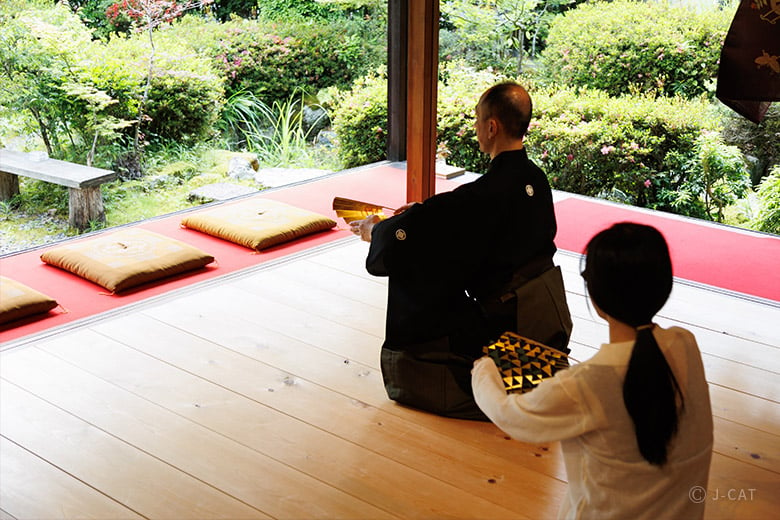
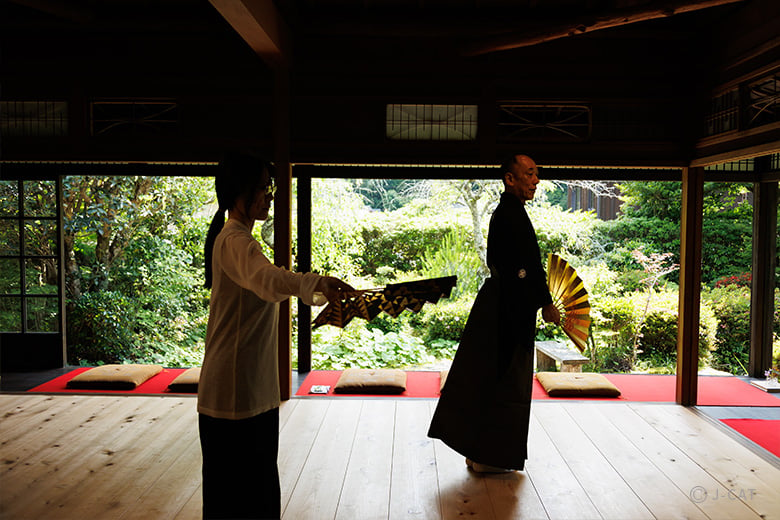
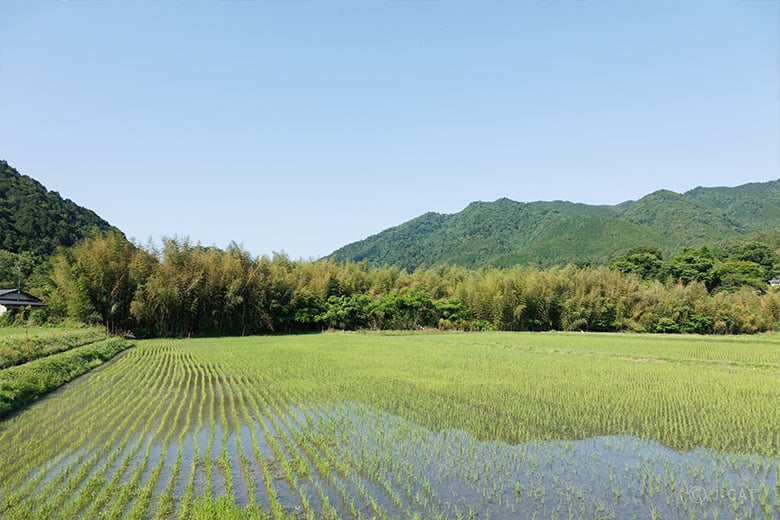
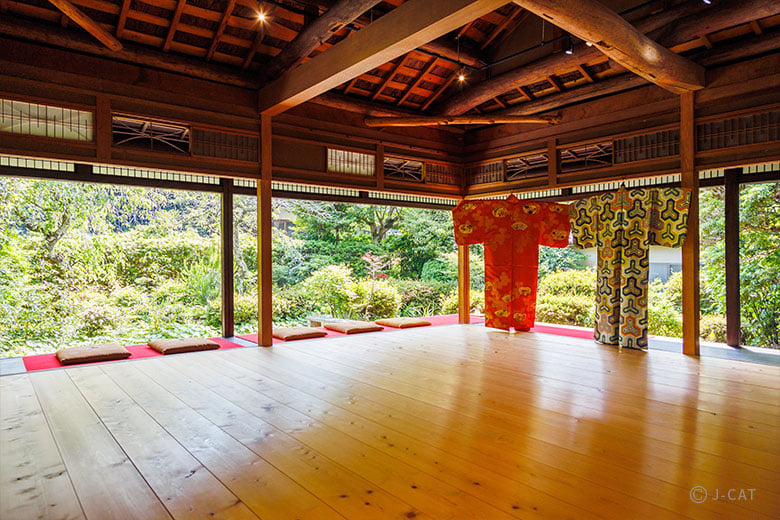
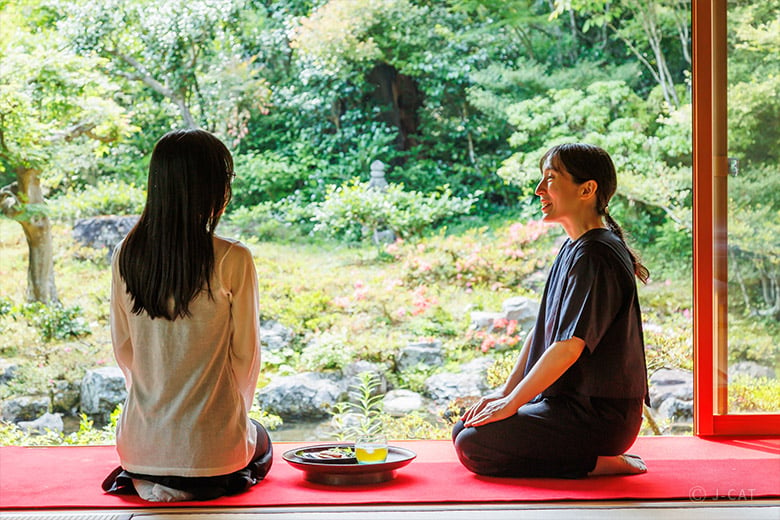
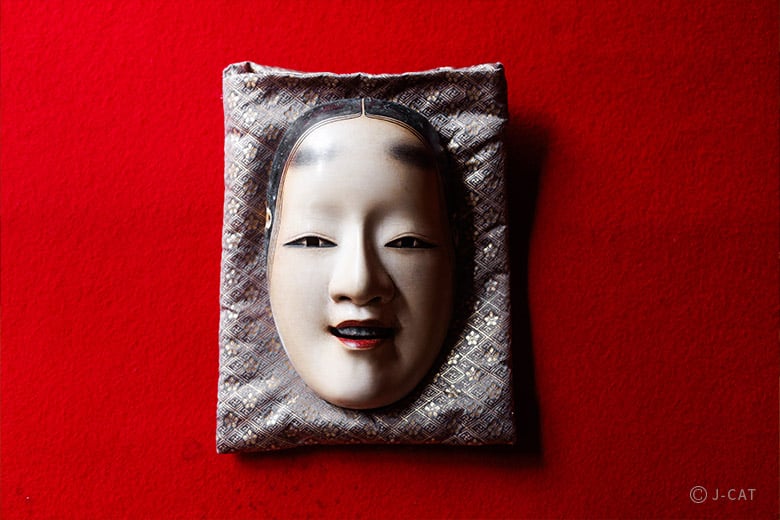
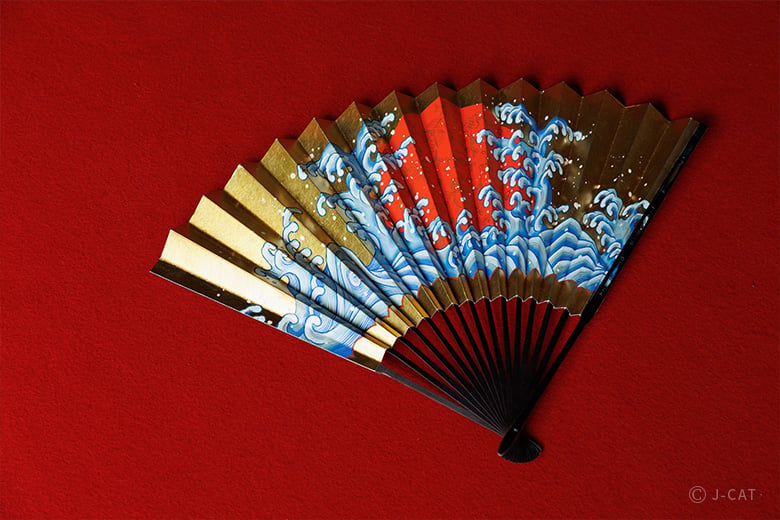
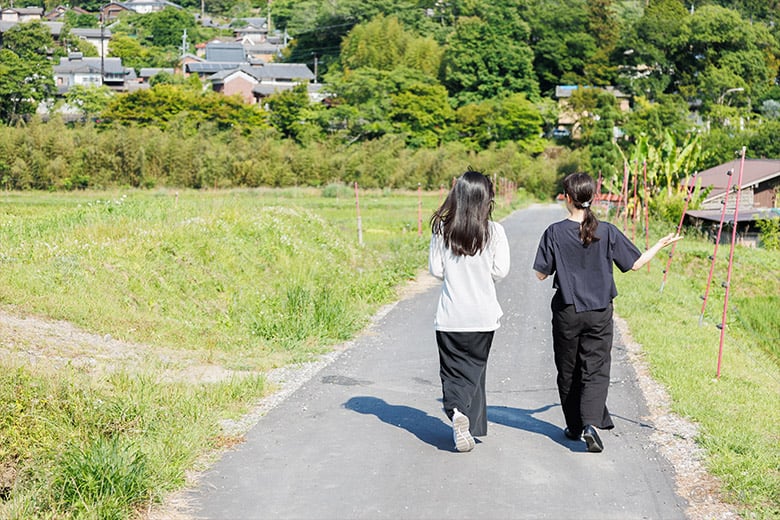
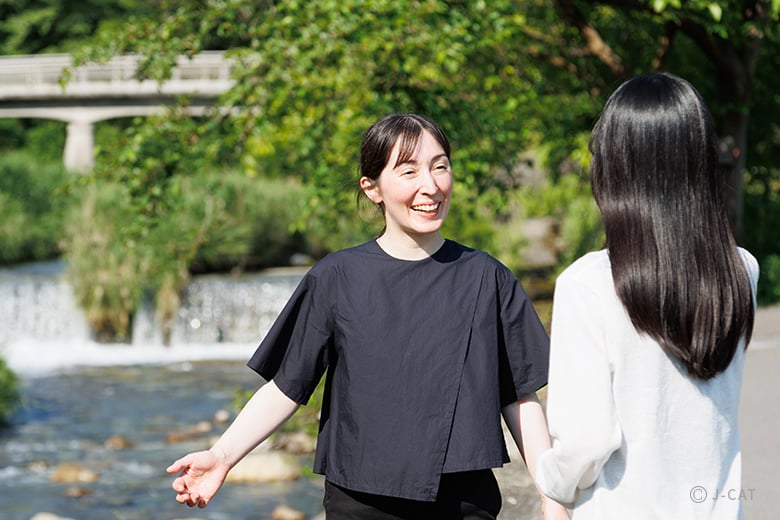
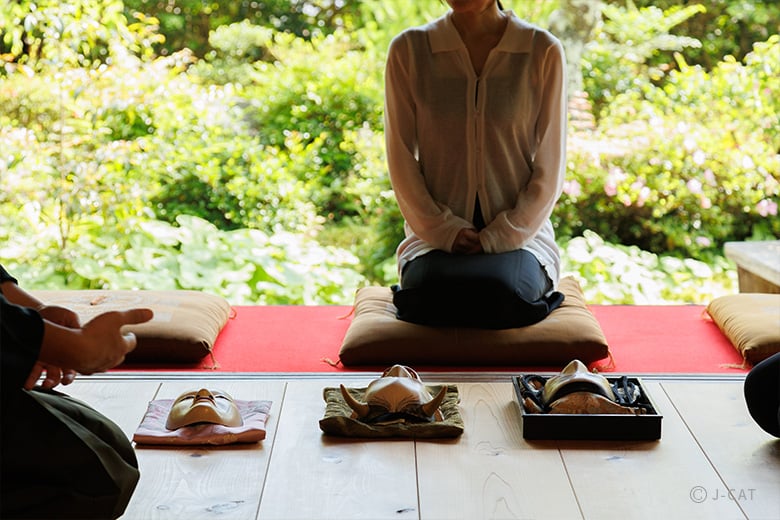
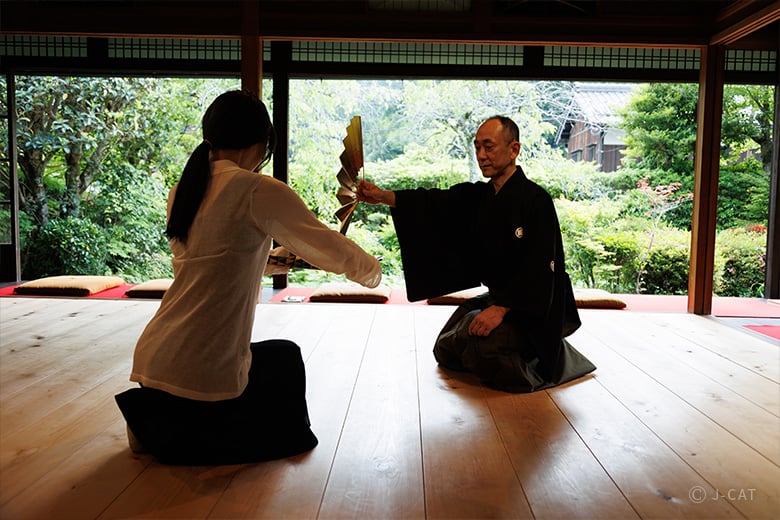
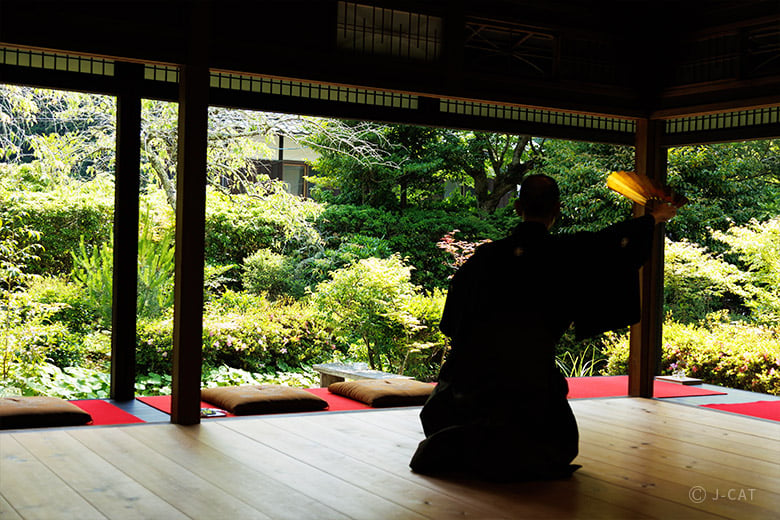





















Overview
Noh is a traditional Japanese performing art with over 600 years of history, recognized by UNESCO as an intangible cultural heritage. In this plan, you'll practice noh in Ohara, Kyoto, surrounded by nature, and watch a beautiful noh performance. You'll also learn about its history and Buddhist influences, experiencing Japanese culture and spirituality. To wrap up, you'll visit a tranquil Zen temple, enjoying tea, sweets, and a beautiful garden view.
Key Features
・Join a noh actor's practice and watch their beautiful dance in Ohara, Kyoto, surrounded by Japan's traditional scenery
・Visit a private Zen temple usually closed to tourists. Enjoy seasonal Kyoto sweets and tea on the veranda
・Choose from various options, including touring Ohara’s temples and watching a noh instrument performance with chanting
*Visitors may also be interested in these other similar plans:
・Enjoy a Kyoto Merchant-Style Celebration With a Noh Actor - With a Sake Toast & Fine Japanese Cuisine>
・Explore Japan’s Finest Hospitality With Noh & Tea Ceremony - Includes Private Performance
Kyoto
180mins
from ¥50,000 /person
1 - 6 participants
Available in English
Cancel free up to 11 days prior
Details
A “Healing Village” Where Nature and Historic Temples Harmoniously Coexist
Ohara, in northern Kyoto City, is a tranquil rural area showcasing Japan's traditional landscape. Rich in history and culture, it's home to many temples and was a retreat for aristocrats and samurai. Notably, women of the Heike clan, a prominent samurai family in the 12th century, sought refuge here after their fall, a story depicted in a famous noh play.

Ohara, Kyoto, embraced by nature
In this experience, your guide and interpreter is Julia Yamane, who represents Discover Noh in Kyoto. Knowledgeable about Kyoto, she leads workshops, tours, and guides to promote noh. Julia describes Ohara's charm as more than its ancient temples; it's a place where the emotions and lives of its inhabitants resonate, deeply moving visitors.

Julia Yamane, your guide, will explain the connection between Ohara and noh in detail
The plan begins with experiencing the natural beauty of Ohara. You'll join Julia on your way to the noh stage, surrounded by rice fields, the gentle river, and birdsong—nature you won’t find in the city.
Soothing Sadness and Suffering, Reflecting the Beauty of Impermanence
In noh practice, you first learn basic knowledge directly from a noh actor. Originally, noh was a ritual offering to gods, Buddhas, and spirits of the deceased. Thus, actors portray not only humans but also vengeful demons and spirits burdened with regrets, aiming to soothe souls through tales of human sorrow, anger, and suffering. Noh conveys a deep spiritual message, depicting the link between the natural and human realms, and between our world and the afterlife.

The noh stage is a sacred space, linking the real world and the afterlife
Noh is deeply intertwined with the Buddhist concept of "Shinra Bansho," which teaches that everything lacks inherent substance, constantly changes, and is interconnected. A central theme of noh is to perceive the profound meanings and unseen emotions beyond mere appearances. It transcends mere art, bridging the worlds of life and death, maintaining significance even in modern times.

Noh masks leave a deep impression, revealing multiple expressions on a single mask
During the experience, you'll view noh masks and exquisite costumes made from high-quality fabrics like brocade, accompanied by explanations. The masks' meanings shift with angles and colors; for instance, covering the mouth of a Hannya (a jealous female demon) mask changes it from anger to deep sadness. You'll discover that masks in noh serve not only to express characters' emotions but also to conceal the performer's changing facial expressions, emphasizing the deeper meanings and emotions they convey.
Lose Yourself and Blend With Nature to Dance Noh
After learning the basics of noh, you'll proceed to learn etiquette from a noh actor. Noh movements are distinctive: performers engage their hips, tuck their chins, and glide without lifting their feet off the ground. Even gestures like withholding tears or pouring sake are simplified to their essence. Small actions, such as adjusting a mask, subtly alter its angle, revealing striking expressions.

Even seemingly expressionless women's masks convey subtle emotions with a slight angle
The stylized movements in noh are stripped of unnecessary elements, inviting the audience to engage their imagination and insight. Actors are taught to embody characters by "letting go and dancing like yorishiro,” objects in Shinto rituals believed to attract and house spirits.

The noh performer carefully instructs on arm stretching and breathing techniques
After the practice, you’ll observe the noh performer's dance. It's a unique experience to witness his mesmerizing movements blend with the garden on an open stage caressed by the wind. When the performer gazes at the sky or into the distance, you inevitably picture the moon and feel a sense of nostalgia and warmth. One of the unique charms of noh is how it sharpens your senses, allowing you to fully enjoy the unfolding scenes.

The dance, blending with nature, is a breathtaking spectacle
As an option, you can also invite a noh instrument player, known as "Hayashikata," to perform. They play a flute, a small drum (Kotsuzumi), or a large drum (Otsuzumi), enhancing the performance and musical score. Additionally, there is a special option where the noh performer wears an exquisite costume and mask, typically reserved for formal performances.
Relax at a Serene Zen Temple
The experience concludes with a visit to a secluded temple just 5 minutes from the noh stage. Normally off-limits to tourists, you'll have exclusive access as part of this plan. Here, you can relax with Julia over tea and sweets, enjoying a delightful conversation.

Enjoy seasonal Kyoto sweets and tea on the veranda
The garden seen from the temple's veranda is a hidden gem, stunning in every season—from lush greenery in early summer to vibrant autumn leaves. Amidst the temple's serene surroundings, the lively flowers, plants, and pond creatures celebrate the beauty of life.
Discover the Beauty of Impermanence in Harmony With Nature
The changing seasons are a key theme in noh, featuring cherry blossoms in spring, summer rivers, autumn leaves, and winter snow. Audiences sense the fleeting nature of the seasons through the performers' expressions. The quiet yet passionate dances highlight the connection between humans and nature. This experience offers insight into Japan's cultural and spiritual harmony with nature, finding beauty in impermanence. It's a unique aspect of the noh stage in Ohara.

Experience deep relaxation in the serene temple surroundings
Custom tours can be tailored to your preferences. Ohara boasts temples with stunning gardens and national treasure Buddhist statues, along with hot springs and charming inns. Enjoy leisurely walks by waterfalls, and savor local specialties like red shiso and fresh vegetables. Embrace nature's tranquility and reconnect with your inner self in this serene setting where time moves at a gentle pace.
Discover Noh in Kyoto

Discover Noh in Kyoto
The organization aims to foster a deeper understanding and broader appreciation of noh, a traditional Japanese performing art. They engage in various activities such as tourism services, event planning, workshops, and tours catered to inbound tourists and foreign residents in Kyoto. Additionally, they offer interpreter guide courses and educational programs centered around noh for international students and enthusiasts.
Location
Noh Stage in Ohara
Sakyo Ward, Kyoto
Request for booking
Select first preferred date (JST)
February 2026
Sun
Mon
Tue
Wed
Thu
Fri
Sat
Instant Booking
Request Booking

17
Full

17
Unavailable
- Instant Booking: Your reservation is confirmed immediately upon payment.
- Request Booking: You will receive confirmation after the host reviews your request.
Kyoto
180mins
from ¥50,000 /person
1 - 6 participants
Available in English
Cancel free up to 11 days prior
Things to know
Contact Us
If you have any questions, please contact us using the form below.
We also accept bookings from corporate clients and travel agencies.